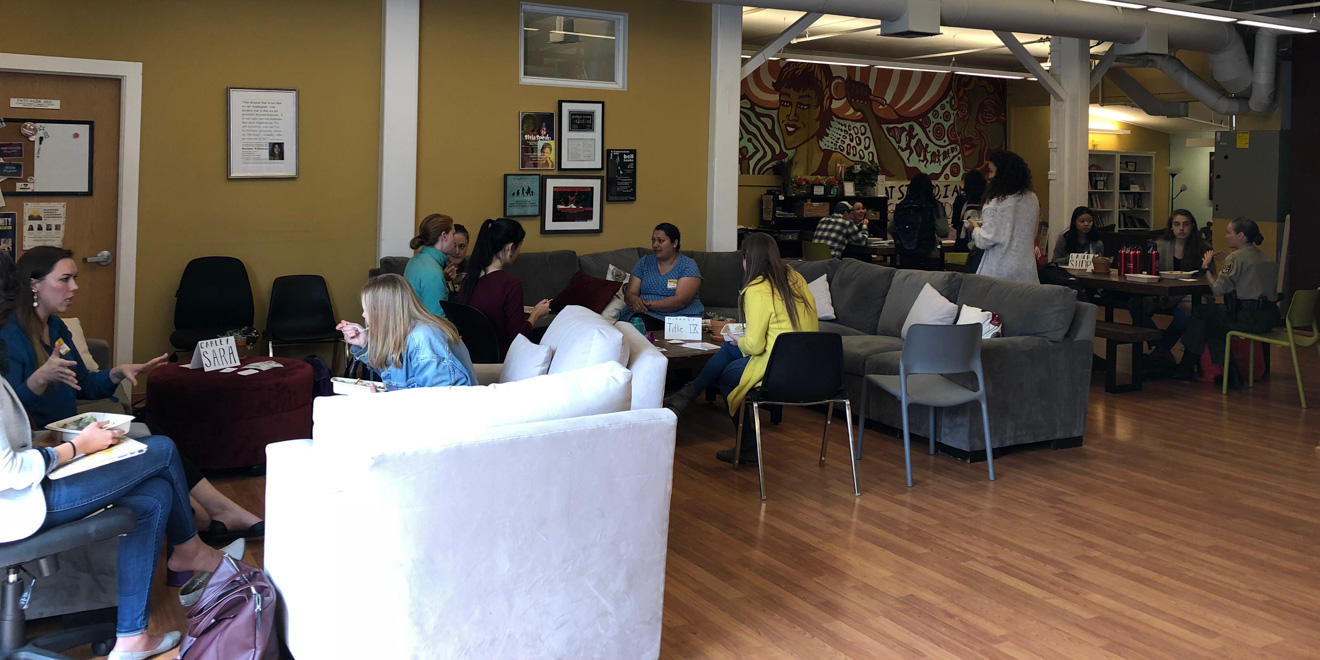On Wednesday, the Women’s Community Center hosted a Sexual Assault Resources Fair where students could speak directly with representatives from four campus organizations concerned with sexual assault.
The Title IX Office, Office of Sexual Assault and Relationship Abuse Education and Response (SARA), Stanford University Department of Public Safety (SUDPS) and Confidential Support Team (CST) were all represented at the event, which was planned for April to coincide with the nationally observed Sexual Assault Awareness Month.
Event organizer Ginger Gramson ’20 said she wanted to provide sexual assault survivors and their peers an opportunity to see the kind of resources available on campus. She added that, rather than just handing out pamphlets or sharing website links, the idea of the fair was to give students the ability to engage directly with members of the campus support network.
Although individual support groups hold events, send emails and post flyers, Grace Cheng ’21 expressed uncertainty over the nuances of different support groups’ roles.
“I came to learn about the resources there are on campus, since I hadn’t really heard about [them],” Cheng said.
The organizations distributed pamphlets detailing their specific roles on campus.
CST is a free, anonymous counseling resource that provides therapy but also advises victims on how to best use other resources available to them. SARA provides another network of support, including advocacy, counseling, medical care and academic assistance. SARA also organizes sexual educational programs such as Beyond Sex Ed, held at the start of the school year.
The Title IX Office is the University’s administrative group that oversees official non-criminal investigations into cases of sexual harassment, sexual assault, sexual misconduct, relationship violence and stalking on campus.
SUDPS Chief Laura Wilson highlighted what she sees as a couple of key differences between reporting to the police and first approaching the University. For one thing, Wilson said, the burden of proof is much lower in University proceedings than in typical, public legal proceedings.
Regarding the accessibility of police resources to people of color and other minorities, Wilson noted that Stanford’s campus police take more training classes than required by the state of California and said they are constantly taking steps to promote diversity within their own ranks.
“It’s a complex topic,” Wilson said, elaborating on the distinct role campus police play in cases of sexual assault.
While the event focused on the resources provided by existing organizations, Tessa Lisanti ’21 said that, by attending, she hoped to become a better resource herself.
“I came to educate myself and be able to better help others around me,” Lisanti said.
Contact William Dunlop at wjdunlop ‘at’ stanford.edu.
